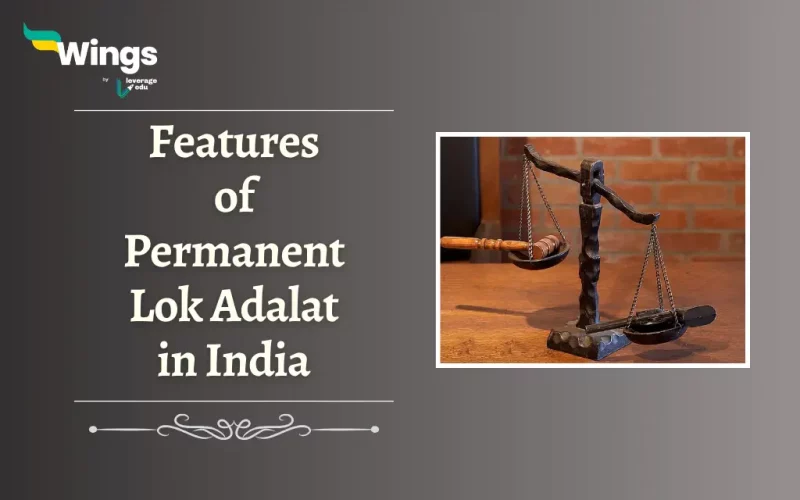In 2002, the Legal Services Authorities Act of 1987 was amended to give birth to the Permanent Lok Adalat to deal with cases about public utility services. These are the permanent bodies that consist of a chairman and two members. Furthermore, these people provide necessary pre-litigation mechanisms like settlement and conciliation in matters relating to transport, postal, telegraph, etc. Moreover, the amount of jurisdiction from the Permanent Lok Adalat can go up to ten lakhs. In case, the parties involved in the case, fail to resolve, the Permanent Lok Adalat is free to give their judgment.
Also Read- National Legal Services Day 2023
Salient Features of Permanent Lok Adalat
Additionally, scroll through to know the Salient features of this type of Adalat:
- The Adalat must have a chairman who should complete either of three criteria along with two other people with relevant experience in public utility.
- Is or has been a district judge
- Additional district judge
- Held a higher judicial office
- It has to take care of more than one public utility service like transport, goods by air, road, and water, postal telegraph, services of passengers, supply of power, telephone services, and public conservancy, etc.
- The Permanent Lok Adalat’s monetary jurisdiction can extend to only Rs. 10 Lakhs. The Central government can exercise its power to change the financial jurisdiction. For instance, in 2015, the central government increased it to Rs. One Crore.
- Moreover, if there is any case of an offence, this Lok Adalat cannot exercise any control over it.
- Before bringing any case to any other court, the parties involved can make an application at the Permanent Lok Sabha. However, if the latter has filed it, the application cannot be sent to any court afterwards.
- If a set settlement or terms can solve the dispute between the parties, Adalat can make the possible changes. If the agreement is not done, it can bring the necessary justice to the case.
- The Permanent Lok Adalat’s award is final and binding and should be a decision of the majority of the persons.
Also Read: Difference between Lok Adalat and Permanent Lok Adalat
What are the Disadvantages of Permanent Lok Adalat?
Even though Permanent Lok Adalats aim to resolve disputes quickly they do have some drawbacks:
- Settlement Focus: Lok Adalats rely on both parties reaching an agreement.
- If one party is unwilling to compromise, even if a fair settlement seems possible, the entire process stalls.
- Therefore, this can be frustrating and lead to delays if the case goes back to the traditional court system.
- Pressure and Persuasion: There can be pressure on Lok Adalat authorities to settle cases quickly. Thus, it might lead to less focus on ensuring each party feels their rights are addressed.
- Limited Power: Lok Adalats decisions are binding only if both parties agree. They do not have the same enforcement power as regular courts.
- Lawyer Involvement: Lawyers may be hesitant to recommend Lok Adalat if they believe their client could get a better outcome in regular court.
- Presiding Officer Expertise: While experienced, presiding officers in Lok Adalats may not all have specialized training in mediation, hence potentially hindering their ability to navigate complex disputes.
Related Blogs
Lastly, we hope you liked our blog and gained an understanding of the Permanent Lok Adalat. Moreover, you may even read more blogs and empower yourself with knowledge regarding Civics and Polity!
 One app for all your study abroad needs
One app for all your study abroad needs













